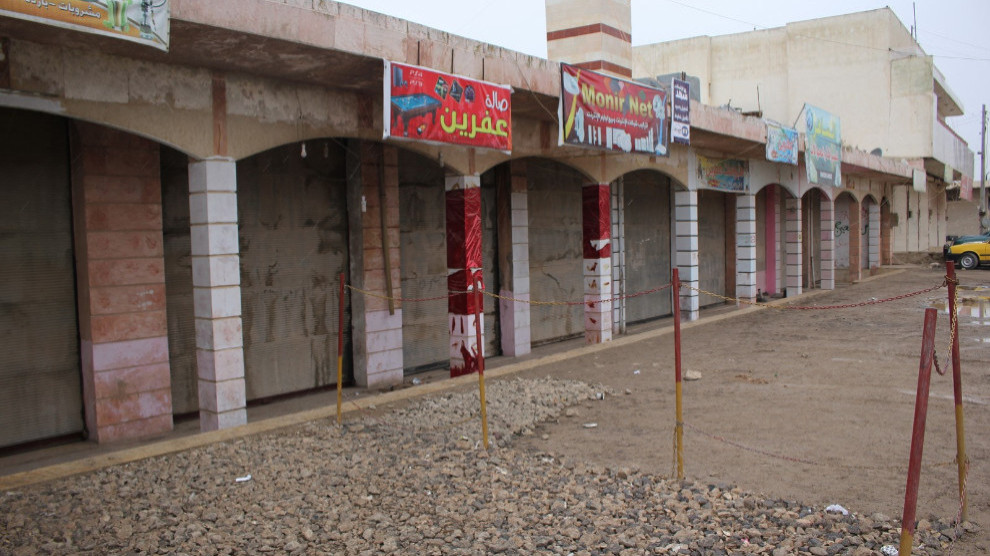Shops in Rojava closed in protest at 15 February conspiracy
For the Kurdish society, the freedom of Abdullah Öcalan is indispensable for a solution to the political conflicts in Turkey, Iraq, Syria and the entire Middle East.
For the Kurdish society, the freedom of Abdullah Öcalan is indispensable for a solution to the political conflicts in Turkey, Iraq, Syria and the entire Middle East.

In protest at the arrest of Abdullah Öcalan on 15 February 1999, shops in North and East Syria remain closed today. Demonstrations have been announced in numerous places.
February 15 is considered a "black day" in Kurdistan and marks the climax of what has been called the "international conspiracy" phase from October 9, 1998 to February 15, 1999. In the course of this period, PKK founder Abdullah Öcalan, who is regarded as the mastermind of the Kurdish liberation movement and the most important political representative of the Kurds, was first declared persona non grata in Syria, and then underwent an odyssey through various European countries before being deported from the Greek embassy in the Kenyan capital Nairobi and handed over to Turkey in violation of international law.
Previously, Öcalan had spent years in Syria. He is the source of ideas for democratic confederalism, a grassroots democratic, ecological social system based on the liberation of women, which is currently being brought to life by the societies living there in Rojava or in the self-governing areas of northern and eastern Syria, despite the invasion of Turkey and its jihadist allies in violation of international law.
For the Kurdish society, the freedom of Abdullah Öcalan is indispensable for a solution to the political conflicts in Turkey, Iraq, Syria and the entire Middle East.